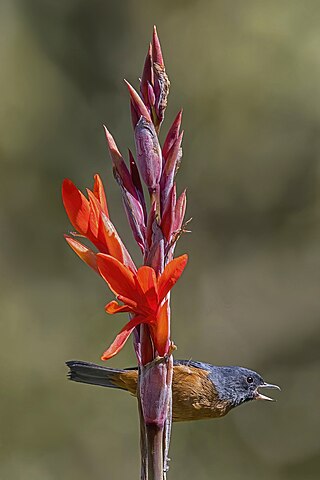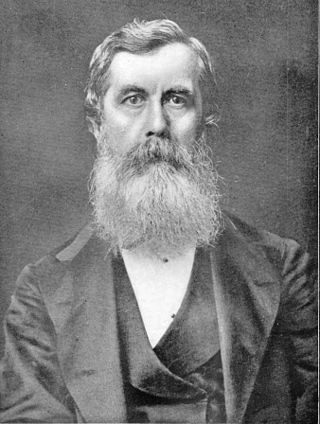
The Battle of Pharsalus was the decisive battle of Caesar's Civil War fought on 9 August 48 BC near Pharsalus in Central Greece. Julius Caesar and his allies formed up opposite the army of the Roman Republic under the command of Pompey. Pompey had the backing of a majority of Roman senators and his army significantly outnumbered the veteran Caesarian legions.

Azadirachta indica, commonly known as neem, margosa, nimtree or Indian lilac, is a tree in the mahogany family Meliaceae. It is one of the two species in the genus Azadirachta. It is native to the Indian subcontinent and to parts of Southeast Asia, but is naturalized and grown around the world in tropical and subtropical areas. Its fruits and seeds are the source of neem oil. Nim is a Hindustani noun derived from Sanskrit nimba (निंब).

Marcus Annaeus Lucanus, better known in English as Lucan, was a Roman poet, born in Corduba, Hispania Baetica. He is regarded as one of the outstanding figures of the Imperial Latin period, known in particular for his epic Pharsalia. His youth and speed of composition set him apart from other poets.

Pharsalia is a town in Chenango County, New York, United States. The population was 593 at the 2010 census. The town was named after Pharsalia, which is a commonly accepted name of the decisive battle in the Great Roman Civil War, where Julius Caesar defeated Pompey in 48 BCE.

Tamarind is a leguminous tree bearing edible fruit that is indigenous to tropical Africa and naturalized in Asia. The genus Tamarindus is monotypic, meaning that it contains only this species. It belongs to the family Fabaceae.

In Roman literature, Erichtho is a legendary Thessalian witch who appears in several literary works. She is noted for her horrifying appearance and her impious ways. Her first major role was in the Roman poet Lucan's epic Pharsalia, which details Caesar's Civil War. In the work, Pompey the Great's son, Sextus Pompeius, seeks her, hoping that she will be able to reveal the future concerning the imminent Battle of Pharsalus. In a gruesome scene, she finds a dead body, fills it with potions, and raises it from the dead. The corpse describes a civil war that is plaguing the underworld and delivers a prophecy about what fate lies in store for Pompey and his kin.

De Bello Civili, more commonly referred to as the Pharsalia, is a Roman epic poem written by the poet Lucan, detailing the civil war between Julius Caesar and the forces of the Roman Senate led by Pompey the Great. The poem's title is a reference to the Battle of Pharsalus, which occurred in 48 BC, near Pharsalus, Thessaly, in Northern Greece. Caesar decisively defeated Pompey in this battle, which occupies all of the epic's seventh book. In the early twentieth century, translator J. D. Duff, while arguing that "no reasonable judgment can rank Lucan among the world's great epic poets", notes that the work is notable for Lucan's decision to eschew divine intervention and downplay supernatural occurrences in the events of the story. Scholarly estimation of Lucan's poem and poetry has since changed, as explained by commentator Philip Hardie in 2013: "In recent decades, it has undergone a thorough critical re-evaluation, to re-emerge as a major expression of Neronian politics and aesthetics, a poem whose studied artifice enacts a complex relationship between poetic fantasy and historical reality."

Cannabis indica is an annual plant species in the family Cannabaceae indigenous to the Hindu Kush mountains of Southern Asia. The plant produces large amounts of tetrahydrocannabinol (THC) and tetrahydrocannabivarin (THCV), with total cannabinoid levels being as high as 53.7%. It is now widely grown in China, India, Nepal, Thailand, Afghanistan, and Pakistan, as well as southern and western Africa, and is cultivated for purposes including hashish in India. The high concentrations of THC or THCV provide euphoric effects making it popular for use for several purposes such as recreational drugs, clinical research drugs and the potential of Cannabis or selected constituents for new drug research or being used in alternative medicine, among many others.

Opuntia ficus-indica, the Indian fig opuntia, fig opuntia, or prickly pear, is a species of cactus that has long been a domesticated crop plant grown in agricultural economies throughout arid and semiarid parts of the world. O. ficus-indica is the most widespread and most commercially important cactus. It is grown primarily as a fruit crop, and also for the vegetable nopales and other uses. Cacti are good crops for dry areas because they efficiently convert water into biomass. O. ficus-indica, as the most widespread of the long-domesticated cactuses, is as economically important as maize and blue agave in Mexico. Opuntia species hybridize easily, but the wild origin of O. ficus-indica is likely to have been in central Mexico, where its closest genetic relatives are found.

Canna indica, commonly known as Indian shot, African arrowroot, edible canna, purple arrowroot, Sierra Leone arrowroot, is a plant species in the family Cannaceae. It is native to much of South America, Central America, the West Indies, and Mexico. It is also naturalized in the southeastern United States, and much of Europe, sub-Saharan Africa, Southeast Asia, and Oceania.

Pharsalia Technologies, Inc. was founded in December 1999, located in Roswell, Georgia, as an emerging company developing network infrastructure products for the Internet market. Led by a team of over 28 software engineers, Pharsalia focused on developing software products for the rapidly escalating content delivery market. The company was headed by Chip Howes, whose team is the inventor of record for over 30 patents in the area of TCP/IP server load balancing, and are credited with the invention of the technology in 1996.

Gignac is a commune in the Hérault département in the Occitanie region in southern France.

A seps is a legendary snake from medieval bestiaries. They were said to have extremely corrosive venom that liquefied their prey.
Toutatis or Teutates is a Celtic god who was worshipped primarily in ancient Gaul and Britain. His name means "god of the tribe", and he has been widely interpreted as a tribal protector. According to Roman writer Lucan, the Gauls offered human sacrifices to him.

Mangifera indica, commonly known as mango, is an evergreen species of flowering plant in the family Anacardiaceae. It is a large fruit tree, capable of growing to a height and width of 30 metres. There are two distinct genetic populations in modern mangoes – the "Indian type" and the "Southeast Asian type".

Hawkins Pharsalia is a historic home located at Ruthsburg, Queen Anne's County, Maryland, United States. It is a 1+1⁄2-story, three-bay, single-pile gambrel-roofed brick dwelling constructed c. 1829, according to a 2015 dendrochronological study by the Oxford Tree-Ring Laboratory. It is one of the best preserved small early-19th century houses in Queen Anne's County, according to the Maryland Historical Trust. Additionally on the property is a brick smokehouse.

Frederic Moore FZS was a British entomologist and illustrator. He produced six volumes of Lepidoptera Indica and a catalogue of the birds in the collection of the East India Company.

Pharsalia is a genus of long-horned beetles in the family Cerambycidae. There are at least 40 described species in Pharsalia, found mainly in South and Southeast Asia.>
In Greek mythology, Hesperia or Hesperie, may refer to the following characters and places:
East Pharsalia is a hamlet in Chenango County, New York, United States. The community is 10 miles (16 km) west of Norwich. East Pharsalia had a post office from March 10, 1830 until September 28, 2002; it still has its own ZIP code, 13758.
















